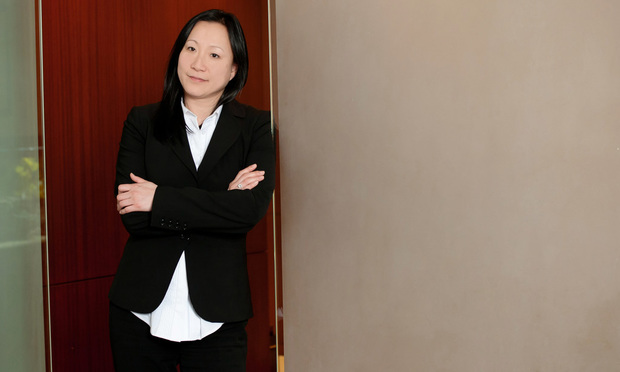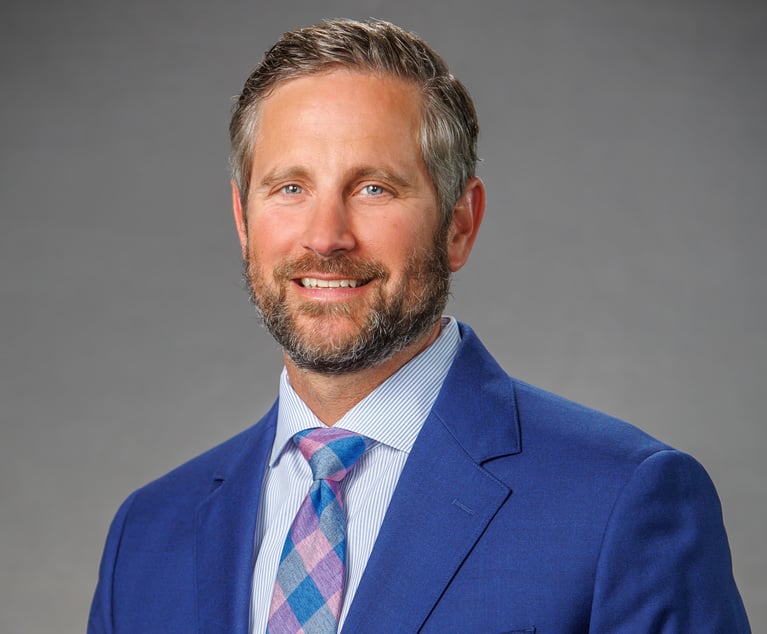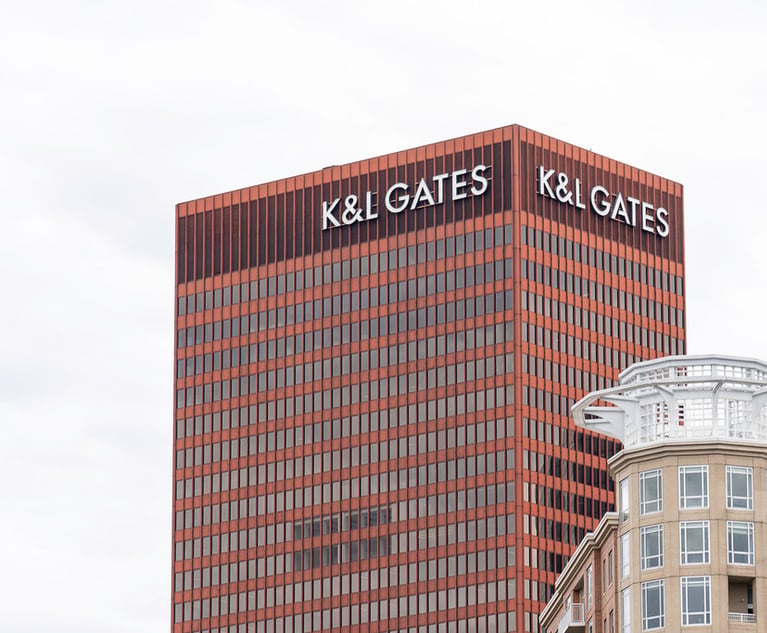COVID-19 Pandemic's Effect on US Immigration
The pandemic has given rise to additional complications and unique challenges that the nonimmigrants and intending immigrants are facing in the United States.
April 15, 2020 at 01:13 PM
7 minute read
 Vicki Li of Klasko Immigration Law Partners
Vicki Li of Klasko Immigration Law Partners
The outbreak of the novel coronavirus (COVID-19) pandemic in early March has caused governments across the globe to close schools, travel and businesses big and small, resulting in millions of people out of work and millions of students out of school. In addition to the travel bans and restrictions implemented by the United States and many other countries, the United States has undergone unprecedented levels of shutdowns and stay-at-home orders, as the death toll continues to rise with no plateau in sight. With the shutdowns and stay-at-home orders, businesses across the country have scrambled to set up staff to work remotely and have had to face economic hardships that have forced reductions in staff hours, or positions altogether. The pandemic has given rise to additional complications and unique challenges that the nonimmigrants and intending immigrants are facing in the United States. This article will provide a general overview of some of the issues faced by nonimmigrant visa holders as well as intending immigrants to the United States.
Both immigrants already in the United States as well as ones outside the country are facing complications as the processing of various immigration benefits have been drastically curtailed. U.S. embassies and consulates around the world have suspended routine immigrant and nonimmigrant visa processing. For example, the National Visa Center (NVC) has issued notifications that due to staffing reduction it will be unable to respond to all inquiries received via NVC's online inquiry tool and to only contact them with urgent medical or humanitarian inquiries, or necessary case updates that are still pending. With respect to U.S. passport services, as of March 20, the Department of State is only able to offer in-person service for customers with a qualified life-or-death emergency and who need a passport for immediate international travel within 72 hours.
As of March 18, U.S. Citizenship and Immigration Services (USCIS) temporarily suspended routine in-person services at its field offices, asylum offices and Application Support Centers (ASC) through as least May 3. This resulted in applicants who had applied for citizenship having their interviews cancelled and their cases put on hold, those who had scheduled biometrics appointments must now wait for rescheduling causing possible delays in the adjudication of their cases, and those permanent residents who need an I-551 stamp in their passports as proof of their continued green card status are now unable to make InfoPass appointments and obtain proof of their ongoing lawful status. Upon resuming of its normal operations, certain appointments will be automatically rescheduled due to the office closure, however, individuals who had InfoPass or other appointments must reschedule through the USCIS Contact Center once field offices are open to the public again. USCIS has announced that it will reuse previously submitted biometrics to process Employment Authorization Document (EAD) extension requests due to the temporary closure of ASCs. Applicants who had an appointment scheduled with an ASC on or after the March 18 closure will have their applications processed using previously submitted biometrics.
Meanwhile, some federal immigration agencies have provided slight flexibility during these challenging times. USCIS recently announced that for applicants and petitioners who receive a request for evidence (RFE) or notice of intent to deny (NOID) dated between March 1 and May 1, any responses submitted within 60 calendar days after the response date set forth in the RFE or NOID will be considered by USCIS before any action is taken. However, the 60-day grace period does not extend to RFEs and NOIDs dated prior to March 1 or those with responses due shortly, all of whom face the same challenges the pandemic has caused in preparing these responses. For instance, many of these RFEs and NOIDs require documents that the petitioners would need to obtain from companies and government entities that may be difficult to contact during this current crisis and therefore the outcome of their petitions seeking immigration benefits could be jeopardized.
The Department of Homeland Security (DHS) and Immigration and Customs Enforcement (ICE) have also announced flexibility in complying with requirements associated with employment eligibility verification (Form I-9) by employers. Employers with employees taking precautions due to COVIC-19 will not be required to review the employee's identity and employment documents in the employee's physical presence. However, employers must inspect documents remotely and obtain, inspect, and retain copies of the documents within three business days for purposes of completing Form I-9. Once normal operations resume, all employees who had their documents verified remotely must report to their employer within three business days for in-person verification of identity and employment eligibility documentation.
ICE will also be temporarily limiting its enforcement actions to focus on individuals that pose a public safety risk and those subject to mandatory detention based on criminal grounds. It is also important to note that ICE will not conduct enforcement operations at medical facilities except under extraordinary circumstances.
One other challenging issue involves the recent implementation by USCIS of the Inadmissibility on public charge grounds rule. The Coronavirus Aid, Relief, and Economic Security Act (CARES Act) includes stimulus payments and an expansion of unemployment benefits, which raises the question of whether the receipt of these benefits would render an alien inadmissible to the United States on "public charge" grounds. USCIS has indicated that the public charge rule does not restrict access to testing, screening, or treatment of communicable diseases, including COVID-19. The rule also does not restrict access to vaccines for children or adults to prevent vaccine-preventable diseases. Importantly, for purposes of a public charge inadmissibility determination, USCIS considers the receipt of public benefits as only one consideration among a number of factors and considerations in the totality of the alien's circumstances over a period of time with no single factor being outcome determinative. The rule requires USCIS to consider the receipt of certain public benefits, including those that may be used to obtain testing or treatment of COVID-19 in a public charge inadmissibility determination. However, if an alien is subject to the public charge ground of inadmissibility and is prevented from working or attending school, and must rely on public benefits for the duration of the COVID-19 outbreak and recovery phase, the alien can provide an explanation and relevant supporting documentation with his or her application for adjustment of status. To the extent relevant and credible, USCIS will take all such evidence into consideration in making the determination.
As with anything affected by the COVID-19 global outbreak, situations and guidelines are rapidly changing. While there are many unforeseen roadblocks seemingly cropping up daily, or new ones arising as the situation shifts across the globe, what remains the top priority is maintaining the health and wellness of everyone in our global community, particularly the most vulnerable. Immigrants have an added layer of concern to contend with, particularly those who are undocumented, but also those who are working and living in the United States legally, as well as the employers that rely on their skill sets to remain competitive in their respective industries.
Vicki Li is a staff attorney in Klasko Immigration Law Partners' Philadelphia office and a member of the firm's EB-5 practice. As a member of the EB-5 team, Li is mostly involved in the preparation and filing of I-526 petitions, for both regional center investors and individual investment opportunities.
This content has been archived. It is available through our partners, LexisNexis® and Bloomberg Law.
To view this content, please continue to their sites.
Not a Lexis Subscriber?
Subscribe Now
Not a Bloomberg Law Subscriber?
Subscribe Now
NOT FOR REPRINT
© 2025 ALM Global, LLC, All Rights Reserved. Request academic re-use from www.copyright.com. All other uses, submit a request to [email protected]. For more information visit Asset & Logo Licensing.
You Might Like
View All

Products Liability: The Absence of Other Similar Claims—a Defense or a Misleading Effort to Sway a Jury?


K&L Gates Sheds Space, but Will Stay in Flagship Pittsburgh Office After Lease Renewal
Trending Stories
- 1'It's Not Going to Be Pretty': PayPal, Capital One Face Novel Class Actions Over 'Poaching' Commissions Owed Influencers
- 211th Circuit Rejects Trump's Emergency Request as DOJ Prepares to Release Special Counsel's Final Report
- 3Supreme Court Takes Up Challenge to ACA Task Force
- 4'Tragedy of Unspeakable Proportions:' Could Edison, DWP, Face Lawsuits Over LA Wildfires?
- 5Meta Pulls Plug on DEI Programs
Who Got The Work
Michael G. Bongiorno, Andrew Scott Dulberg and Elizabeth E. Driscoll from Wilmer Cutler Pickering Hale and Dorr have stepped in to represent Symbotic Inc., an A.I.-enabled technology platform that focuses on increasing supply chain efficiency, and other defendants in a pending shareholder derivative lawsuit. The case, filed Oct. 2 in Massachusetts District Court by the Brown Law Firm on behalf of Stephen Austen, accuses certain officers and directors of misleading investors in regard to Symbotic's potential for margin growth by failing to disclose that the company was not equipped to timely deploy its systems or manage expenses through project delays. The case, assigned to U.S. District Judge Nathaniel M. Gorton, is 1:24-cv-12522, Austen v. Cohen et al.
Who Got The Work
Edmund Polubinski and Marie Killmond of Davis Polk & Wardwell have entered appearances for data platform software development company MongoDB and other defendants in a pending shareholder derivative lawsuit. The action, filed Oct. 7 in New York Southern District Court by the Brown Law Firm, accuses the company's directors and/or officers of falsely expressing confidence in the company’s restructuring of its sales incentive plan and downplaying the severity of decreases in its upfront commitments. The case is 1:24-cv-07594, Roy v. Ittycheria et al.
Who Got The Work
Amy O. Bruchs and Kurt F. Ellison of Michael Best & Friedrich have entered appearances for Epic Systems Corp. in a pending employment discrimination lawsuit. The suit was filed Sept. 7 in Wisconsin Western District Court by Levine Eisberner LLC and Siri & Glimstad on behalf of a project manager who claims that he was wrongfully terminated after applying for a religious exemption to the defendant's COVID-19 vaccine mandate. The case, assigned to U.S. Magistrate Judge Anita Marie Boor, is 3:24-cv-00630, Secker, Nathan v. Epic Systems Corporation.
Who Got The Work
David X. Sullivan, Thomas J. Finn and Gregory A. Hall from McCarter & English have entered appearances for Sunrun Installation Services in a pending civil rights lawsuit. The complaint was filed Sept. 4 in Connecticut District Court by attorney Robert M. Berke on behalf of former employee George Edward Steins, who was arrested and charged with employing an unregistered home improvement salesperson. The complaint alleges that had Sunrun informed the Connecticut Department of Consumer Protection that the plaintiff's employment had ended in 2017 and that he no longer held Sunrun's home improvement contractor license, he would not have been hit with charges, which were dismissed in May 2024. The case, assigned to U.S. District Judge Jeffrey A. Meyer, is 3:24-cv-01423, Steins v. Sunrun, Inc. et al.
Who Got The Work
Greenberg Traurig shareholder Joshua L. Raskin has entered an appearance for boohoo.com UK Ltd. in a pending patent infringement lawsuit. The suit, filed Sept. 3 in Texas Eastern District Court by Rozier Hardt McDonough on behalf of Alto Dynamics, asserts five patents related to an online shopping platform. The case, assigned to U.S. District Judge Rodney Gilstrap, is 2:24-cv-00719, Alto Dynamics, LLC v. boohoo.com UK Limited.
Featured Firms
Law Offices of Gary Martin Hays & Associates, P.C.
(470) 294-1674
Law Offices of Mark E. Salomone
(857) 444-6468
Smith & Hassler
(713) 739-1250





